DARK Season 3: The Involved Time-Travel Series Comes To A Notable End
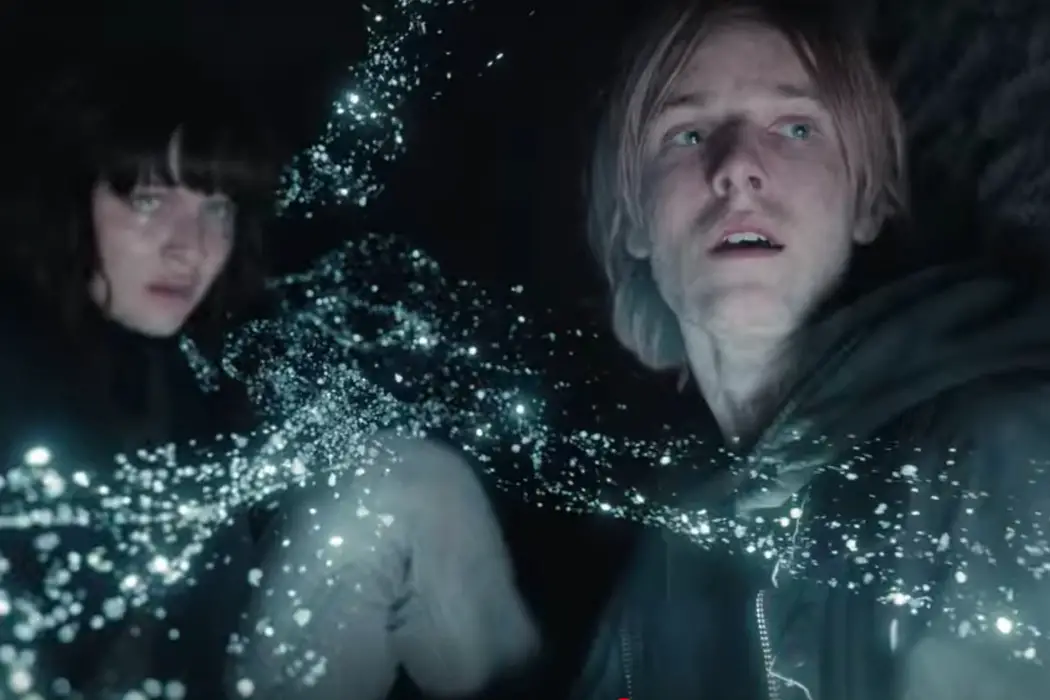
Andrew Stover is a film critic/writer from the Chicagoland. His…
Nowadays, in the bloated television landscape, which is continually expanding given the rivalry between a slew of streaming services, many TV shows are preserved far past their expiration date, while others are abruptly canceled due to low ratings or lofty production costs. From Vince Gilligan’s Breaking Bad to Alan Ball’s Six Feet Under, both shows had a fitting conclusion that vivified the tragic and thematic underpinning behind their initial concepts. Suffice it to say, it made sense for why Vince Gilligan and Alan Ball ended their shows the way that they did. Unfortunately, not every showrunner gets a chance to see their vision through.
Luckily for Netflix’s German-language sci-fi series Dark, the show’s final season is written in a way that feels organic, and the characters get the send-off they deserve. For the duration of the series, creators Baran bo Odar and Jantje Friese deftly wrestled with synchronous timelines, bootstrap paradoxes, and the byzantine ancestry of various time-traveling families, including the Kahnwalds, Nielsens, Dopplers, Tiedemanns, and Tannhauses.
When the first season of Dark came out, it lived up to its name. Muted rooms, a foreboding forest, and a tenebrous cave that sent out ambient sounds. Not to mention the bleak storytelling, which showcased mangled bodies, dead birds, tawdry affairs, discussion of suicide, and overarching gloom. As the season continued, it rigorously established an elaborate web of character arcs and time-bending plot threads to untangle, purely to construct a fully-fledged meditation on fate. The second season followed in its footsteps and enhanced the story, even if it did get more deeply convoluted. Yet, no matter how convoluted the series got in terms of scale, there was still enough melodrama to go around.
Where (Or When) Did We Leave Off
The first season of Dark opened in 2019 and highlighted the fictitious south German town of Winden and a few of its downhearted residents. It all started with the disappearance of young Mikkel Nielsen (Daan Lennard Liebrenz), who vanished while exploring the woods with his older sister, Martha (Lisa Vicari); his older brother, Magnus (Moritz Jahn); Martha’s boyfriend, Bartosz Tiedemann (Paul Lux); Magnus’ girlfriend, Franziska Doppler (Gina Stiebitz); and their classmate, Jonas Kahnwald (Louis Hofmann), Martha’s ex. It’s later revealed that the disappearance of Mikkel is related to an arcane portal in the caves situated underneath the power plant. The instrument of time-travel came into play early on, and it remained a pertinent element throughout the series, as it bracingly progressed the discourse on free will.
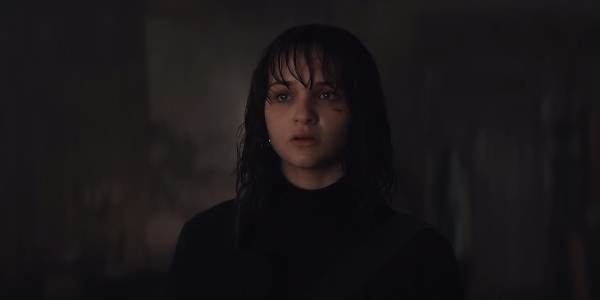
Season one yielded flashbacks to two other time periods: 1953 and 1986. The second season added two more time periods: 1921 and 2053, and Jonas ventured to both time periods. Along Jonas’ nonlinear trek, he would eventually confront Adam (Dietrich Hollinderbaumer), an enigmatic man hell-bent on undoing the cycle and destroying the world. But we soon discover that the seemingly vile Adam is the future version of Jonas. From the killing of Mads, the uncle of his girlfriend Martha, to the murder of Claudia (Lisa Kreuzer), Jonas orchestrated it all under the guise of Adam.
The second season left us with a lot of questions and revelations, one of which involves police chief Charlotte Doppler (Karoline Eichhorn). In the second season, Charlotte found out that she’s the daughter Noah has with the deaf Elisabeth Doppler (Sandra Borgmann) in the future. After being born to Elisabeth and Noah, Charlotte was taken back to the 1970s to be raised by H.G. Tannhaus (Christian Steyer). Charlotte married Peter (Stephan Kampwirth) and gave birth to Elisabeth, making Charlotte Elisabeth’s mother and Elisabeth Charlotte’s mother, creating a Bootstrap Paradox. Since Mikkel traveled back in time to become Michael Kahnwald, Jonas’ father, Noah is somewhat related to Jonas, and Elisabeth and Charlotte are Jonas’ cousins.
We also find out why Claudia went against Adam. When Adam imparted to Claudia that her daughter Regina had to die, she took on the daunting task to alter her daughter’s fate, an act of parental love that doesn’t go unnoticed. And The Stranger (Andreas Pietschmann), a.k.a middle-aged Jonas, was able to save Franziska, Magnus, and Bartosz by time-traveling to an undisclosed time period to evade the apocalypse. But, more importantly, Adam shoots Martha in the final episode, because he’s convinced that by killing Martha, Jonas will toughen up and become the evil incarnation of Jonas that is Adam. After Martha’s death, we were left with a shocking revelation that instigated the reveal of alternate worlds. Another version of Martha just so happens to appear after Jonas’ Martha is killed, and she claims to be from another world.
The Final Season Introduces Another World
We begin right where the second season left off, with Jonas witnessing the death of Martha from the hands of Adam, and questioning the arrival of another Martha who claims to be from another world. Using her portable, rounded time-traveling device, she transports the two of them into the cave system, and Jonas emerges from the cave and finds himself in an aesthetically familiar yet subtly dissimilar Winden.
Martha vanishes, and Jonas is compelled to explore the new Winden. In this Winden, the Nielsen family lives in what used to be Jonas’ house, Ulrich and Katharina (Jördis Triebel) are divorced, and Ulrich is married to Hannah (Maja Schöne), and they’re expecting a baby. Whilst Hannah isn’t Ulrich’s mistress anymore, he has sought out another one, this time with Charlotte.
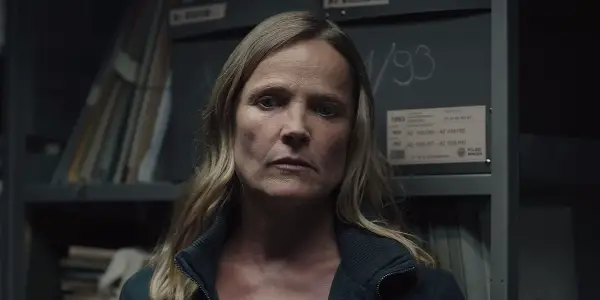
Charlotte is still married to Peter, who is now, surprisingly, a reverend. They still have two daughters, Elisabeth and Franziska, but in this particular reality, older sister Franziska is the one who’s deaf. Franziska is still in a relationship with Magnus, and Elisabeth looks after her grandfather Helge, who lost an eye in this dimension. It is also the night of Mikkel’s disappearance, but in this world, Mikkel doesn’t tag along with Martha, Magnus, Bartosz, and Franziska into the woods. Because Mikkel didn’t get hauled back in time, Jonas has entered a world where he doesn’t exist.
At the end of the episode, Jonas is confronted by an older Martha, and she emphasizes how they are the source of the apocalypse of both worlds. At the same time, the Martha who brought Jonas to her world via time travel transports herself to 1888, where the middle-aged Jonas and the rest of Jonas’ crew — the original Magnus, Franziska, and Bartosz — are working on a time machine.
The season premiere, titled “Deja-vu”, introduces another world, without ever debilitating the pace or deep-seated intrigue. Louis Hofmann‘s delectably subdued performance as Jonas still attracts the viewer’s interest into where (and when) Jonas’ time-traveling expedition takes him. Dark unabashedly features a number of characters who are products of an involved and incestuous family tree. It makes you wonder who will cease to exist if the cycle is terminated. The season premiere underscores the love Jonas has for Martha, which feels heartbreakingly authentic and intrinsically doomed, especially considering how Jonas and Martha uniquely exist because of the cycle. There’s also a lingering question behind how much of the cycle is preserved based solely on Jonas and Martha’s relationship, which is further intensified by biblical symbolism.
Between the surreal introduction of the new Winden, we also get the spellbinding introduction of the cleft lip trio, three eerily lifeless figures who are undoubtedly the same man as a young boy, a middle-aged adult, and an elder. They’re ruthless enforcers who cross their arms at the same moment before killing their next target. They seem to be on a mission to conserve the cycle, and they are by far one of the most horrifying additions to the series.
Dark Gets Even More Compellingly Tangled
Even in another reality, Winden is a bucolic town made up of dejected and sordid inhabitants. Jördis Triebel‘s Katharina is still bitter and enraged, resentful of Ulrich and Hannah’s relationship. Oliver Masucci‘s Ulrich is still unfaithful and self-destructive. Maja Schöne‘s Hannah is still frustrated by men and love. The relationship that prospered on this Earth was Magnus and Franziska’s, both of whom exhibit the pristine image of young love. Woefully, for Jonas and Martha, their young love seems innately blemished by tragedy.
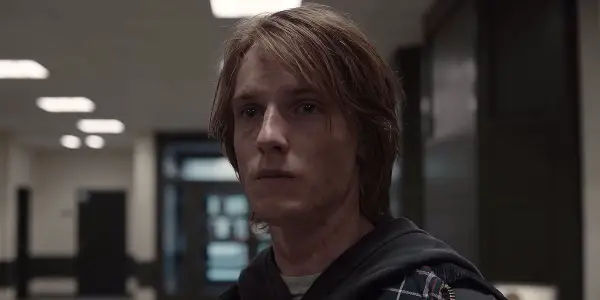
On the primary Earth, Katharina packed a bag and made her way to the caves, determined to retrieve her son from the year 1987, unaware that Ulrich has been rotting away in a psychiatric institution. Hannah is still in the year 1954, and she started a relationship with police officer Egon Tiedemann. Young Elisabeth and her father Peter are survivors of the power plant catastrophe, and they’re spending their days looking for Charlotte and Franziska. And middle-aged Jonas and the rest of the crew are still in 1888 trying to build a time machine. Granted, the fashion in which these subplots are examined depends on the episode, as the narrative jumps between the past, present (what is the present, exactly?), and future quite sporadically. Thankfully, the brisk scene transitions make it easier to distinguish what year and what earth we’re on.
Louis Hofmann and Lisa Vicari have nice chemistry, and you can buy into their romance as an ill-starred prophecy. Out of the two of them, Vicari is the standout, as she’s tasked to act out two other Marthas, who are technically the same Martha, but in different moments in time. The alt-Martha who dragged Jonas to her world is more austere and oppressed, and Vicari effortlessly embodies this novel version of the character.
The casting in general is phenomenal. Casting director Simone Bär deserves to be lauded. She picked actors who are not only tailored to play their roles but who look vastly alike to the actors playing their role’s younger or older selves.
Throughout the eight episodes, Dark summons the recurring themes of retrocausality and destiny we’ve grown accustomed to during the first two seasons. There are also a handful of new faces Jonas meets along the way, including the suspect Eva, whose fidelities are perpetually shifting, and the paucity of trust Jonas has for about everyone he meets moderately takes a toll. Since the allegiances and motivations behind numerous characters are hypnotically distorted, the season brims with amplified perplexity and dubiety.
In addition to valuing the characters’ separate quests, the third season cooks up a fresh batch of moral and parental quandaries. Over the course of the series, Dark kept on asking if our lives were domineered by fate or by free will. And, in all honesty, Dark’s reliance on such weighty subjects gets tiresome. That being said, the third season is roughly built on the fabric of familial relations, imprudent determination, specious hope, and parental love, which steer the actions of the characters. But are the characters, under the veneer of volition, simply fulfilling what the cycle entails? That’s what the characters and viewers have to constantly ask themselves.
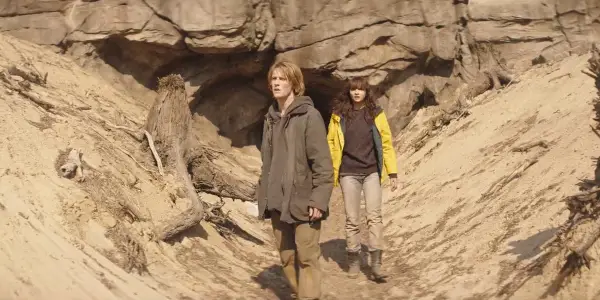
A year later, and Winden is still a deliciously lugubrious destination. Nikolaus Summerer‘s stellar cinematography deploys grimy aerial and long shots of Winden, which often encompasses the town’s power plant, an unsightly structure indicative of the impending apocalypse for both worlds. Ben Frost‘s absonant score is an appealing concoction of instrumental sounds, keeping in sync with the exigency of Jonas’ nonlinear excursion, and the tragedy of Jonas and Martha’s relationship. Udo Kramer‘s unassuming production design abides by the varied time periods, but it also doesn’t try to minimize the story for visual grandeur. Keeping the aforementioned attributes in mind, Odar mostly maintains a purposefully measured pace, a blood-curdling atmosphere drenched in an ashy grey color palette, and a crippling sense of urgency given the divergence and ruination of two worlds instead of one. However, later into the series, an avowedly dire divulgence regarding the Origin is rather stilted, and the reasoning behind how it’ll assist Adam’s plan for the utter ruination of both worlds is unconventionally hurried. Fortunately, the series swiftly regains focus not too much later.
The final season of Dark is a cross-dimensional testament to how far one would go for love, and how acutely cruel time can be to the human psyche. In the unforgiving world of Dark, time travel, a theory that many believe to be a life-altering tool that could be used to save loved ones and remold history, ends up engendering a cycle of violence, implausibilities, and paradoxical romances; it’s eternal damnation.
Baran bo Odar (who directs all eight episodes of the season) and Jantje Friese don’t submit to any easy answers, and they don’t miscalculate the world — and the themes — they already nurtured into existence. If anything, they reinforce the undeniable truth that Dark is one of the most finely-crafted and brilliantly-written shows in recent years. Without spoiling the end, such perennial abstractions of deja vu and self-sacrifice are fascinatingly developed. However, even with a timely finale, not everything is answered, and that’s perfectly acceptable. The finale can be interpreted in a couple of ways, and it somehow works bearing in mind that the show, for three full seasons, underlined a scrambled fray between destiny and free will, with knotty results. Suffice it to say, the somewhat open-ended finale is earned.
Still Creepy, Challenging, And Stirring, Dark Reaches A Remarkable Conclusion
The third and final season of the German-language series prompts us to consider if everything we do is part of a precise formula. Even when we know what our future self becomes, and we swear on our lives that we’ll never become that version of ourselves, do we have a choice? And the generational anguish associated with the show’s quintessential cycle pushes us to comprehend how much of our lives are fueled by the pure belief that the choices we make matter. Like the citizens of Winden, we desire free will, and we desire to live our lives, but to do so beyond mere existence.
For three seasons, Dark demanded patience and provoked tempting reflection on fate, a theoretical postulation that’s been the topic of dozens of films, novels, and shows. Yet, regardless of the show’s familiarity with the notions on time travel, creators Baran bo Odar, and Jantje Friese artfully assembled a sci-fi epic that’ll be scrutinized for years to come. I can’t help but extol what they accomplished, and I can’t wait to relive the series again in the not-so-distant future — and then again and again and again.
Have you seen the final season of Dark? If so, what are your thoughts on it? Let us know in the comments!
The third and final season of Dark was released on Netflix on June 27, 2020.
Watch Dark
Does content like this matter to you?
Become a Member and support film journalism. Unlock access to all of Film Inquiry`s great articles. Join a community of like-minded readers who are passionate about cinema - get access to our private members Network, give back to independent filmmakers, and more.
Andrew Stover is a film critic/writer from the Chicagoland. His film & TV reviews can be found on Film Inquiry & Film Threat.













